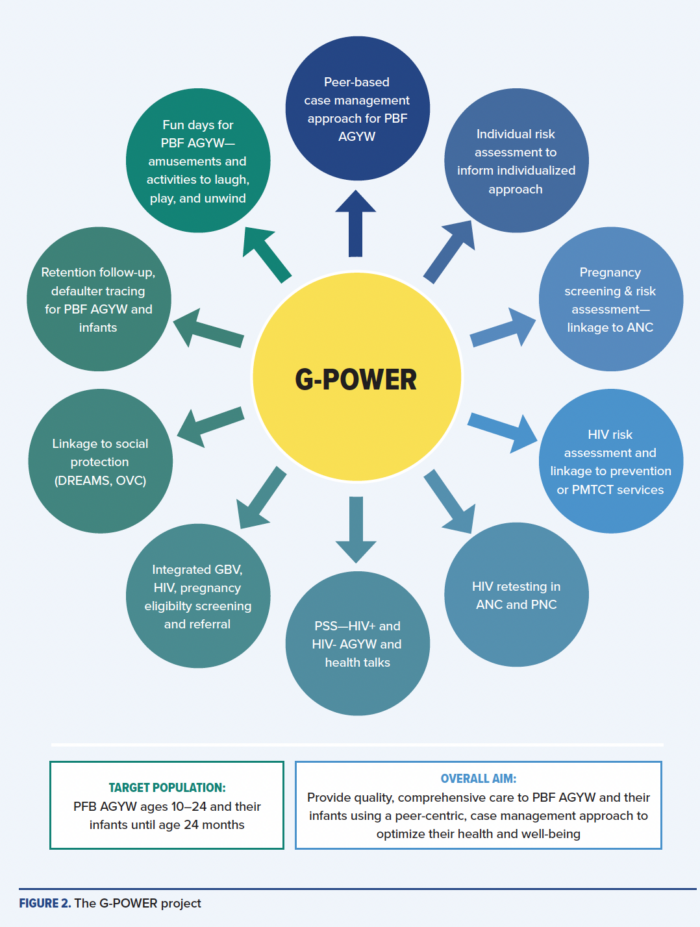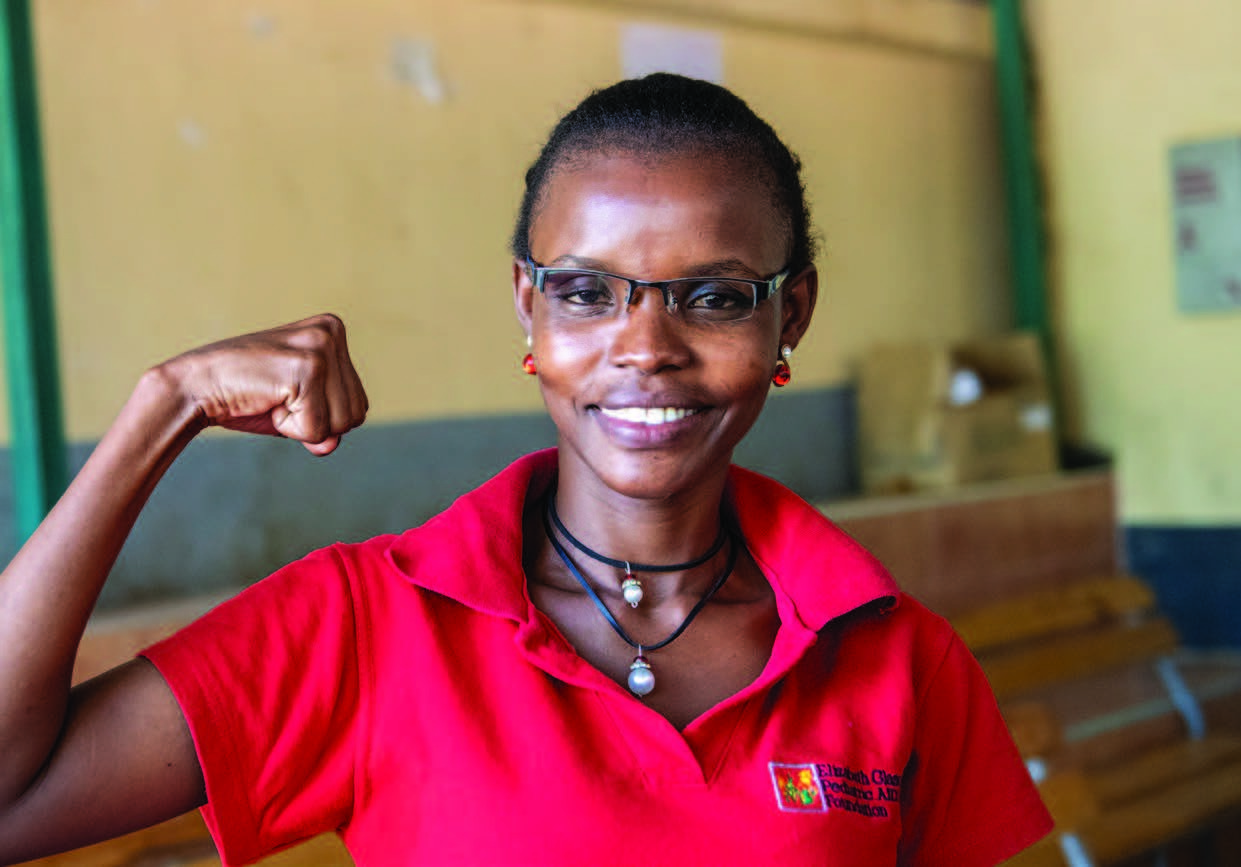In recognition of gaps within the cascade of care for pregnant and breastfeeding (PBF) adolescent girls and young women (AGYW) and their infants, the Elizabeth Glaser Pediatric AIDS Foundation (EGPAF) Kenya, with support from The ELMA Philanthropies, designed and implements a tailored, multi-pronged, and sectoral package of care aimed at providing quality, comprehensive, peer-centric care for improved retention and clinical outcomes among PBF AGYW and their infants. This package, known as G-POWER, refers to girls who will be protected, optimistic, wise, empowered, and resilient through the support of the program. Initiated in 2020, G-POWER is being implemented in 36 facilities in Homa Bay County, Kenya, with 40 trained and capacitated AGYW peer mentors spearheading the approach.
Rationale for G-POWER
The G-POWER program is a multidimensional approach that aims to address specific gaps in the care continuum in responding to the triple threat, and to support PBF AGYW and their infants in achieving optimized outcomes and health through a peer-centric case management and multidisciplinary team approach. Although the program is focused on provision of care and support through layered means to all PBF AGYW and their infants, activities focused on the needs of HIV-positive and HIV-negative AGYW are prioritized to ensure continuation of treatment and prevention as well as optimized GBV screening, identification, and linkage as needed.
The G-POWER package
As shown in Figure 2, G-POWER consists of several interwoven activities at structural, biomedical, and behavioural levels. At its core, the program provides a multi-layered, individualized, peer-centric case management approach to support the health of the PBF AGYW and her infant. Through the support of a multidisciplinary team (MDT) and led by an AGYW peer mentor, the PBF AGYW and her infant are followed and supported throughout the pregnancy, delivery, and breastfeeding period to ensure ongoing engagement with the health facility and to ensure early and rapid response and linkage to services as needed.





